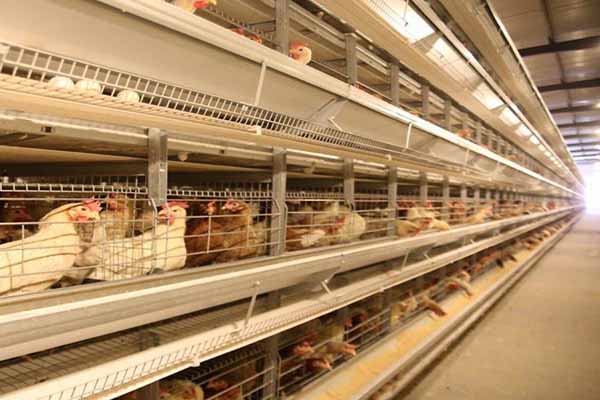How to Improve Egg Production Rate in Tanzania Chicken Farms
Time : 2025-07-25
As a leading poultry equipment manufacturer from China, Livi Machinery understands the importance of optimizing egg production in chicken farms across Tanzania. With our extensive knowledge in poultry equipment and a commitment to sustainable farming practices, we’ve compiled a comprehensive guide to help you boost your egg production rate. Let’s dive in!
1. Selecting the Right Chicken Breed
The first step to improving egg production is choosing the right breed. In Tanzania, some of the most popular breeds for egg production include the Leghorn, Rhode Island Red, and Brown Leghorn. These breeds are known for their high egg-laying capacity and adaptability to various environmental conditions.
1.1 Consider the Climate
Tanzania’s diverse climate requires breeds that can withstand both hot and cold conditions. For instance, the Leghorn is well-suited for tropical climates, while the Rhode Island Red is better for cooler regions.
1.2 Evaluate Egg Size and Color
Different breeds lay eggs of varying sizes and colors. Consider your market preferences and choose a breed that aligns with the demands of your customers.
2. Optimize Housing Conditions
Proper housing is crucial for maintaining healthy hens and maximizing egg production. Here are some key factors to consider:
2.1 Temperature Control
Hens require a comfortable temperature to lay eggs consistently. In Tanzania, where temperatures can vary greatly, it’s essential to have a reliable cooling system, such as fans or air conditioning, to maintain an optimal temperature of 70-75°F (21-24°C).
2.2 Ventilation
Good ventilation is necessary to ensure a fresh supply of oxygen and to remove ammonia and other harmful gases. Natural ventilation through windows and doors is ideal, but mechanical ventilation systems can also be effective.
2.3 Space Allocation
Provide each hen with enough space to move around comfortably. A general guideline is about 2-3 square feet per hen. This allows for easier management and reduces the risk of aggression and feather pecking.
3. Implement a Balanced Diet
A well-balanced diet is essential for maintaining the health of your hens and ensuring high egg production. Here are some key points to consider:
3.1 Quality Feed
Use high-quality feed that meets the nutritional requirements of your hens. In Tanzania, it’s important to choose a feed that is rich in protein, vitamins, and minerals.
3.2 Feed Ration
Provide a consistent feed ration throughout the year. Avoid sudden changes in feed, as this can lead to decreased egg production.
3.3 Fresh Water
Ensure that your hens have access to clean, fresh water at all times. Adequate hydration is crucial for egg production.
4. Regular Health Management
Regular health management is vital for maintaining a healthy flock and preventing disease outbreaks. Here are some key steps to consider:
4.1 Vaccination Program
Implement a vaccination program to protect your hens from common poultry diseases. Consult with a veterinarian to develop a tailored vaccination schedule.
4.2 Regular Health Checks
Perform regular health checks to identify any potential issues early on. This includes checking for signs of disease, malnutrition, or stress.
4.3 Biosecurity Measures
Adopt strict biosecurity measures to prevent the introduction of diseases into your flock. This includes regular cleaning and disinfection of the farm, as well as controlling access to the farm.
5. Utilize Advanced Poultry Equipment
Investing in high-quality poultry equipment can significantly improve your egg production rate. Livi Machinery offers a range of advanced poultry equipment, including:
– Automated Feeders: These feeders ensure a consistent feed ration and reduce the labor required for feeding.
– Watering Systems: Our automated watering systems provide clean, fresh water to your hens at all times.
– Egg Collection Systems: Our egg collection systems help to minimize the risk of contamination and reduce the labor required for egg collection.
6. Monitor and Adjust
Regularly monitor your egg production rate and make adjustments as needed. Keep a record of your hens’ egg production, feed consumption, and any changes in their behavior or health. This data will help you identify potential issues and make informed decisions to improve your egg production.
Conclusion
Improving egg production in Tanzania chicken farms requires a combination of selecting the right breed, optimizing housing conditions, implementing a balanced diet, maintaining regular health management, and utilizing advanced poultry equipment. By following these steps and consulting with experts like Livi Machinery, you can significantly increase your egg production rate and achieve sustainable farming practices.
, , , , , , , , , 











